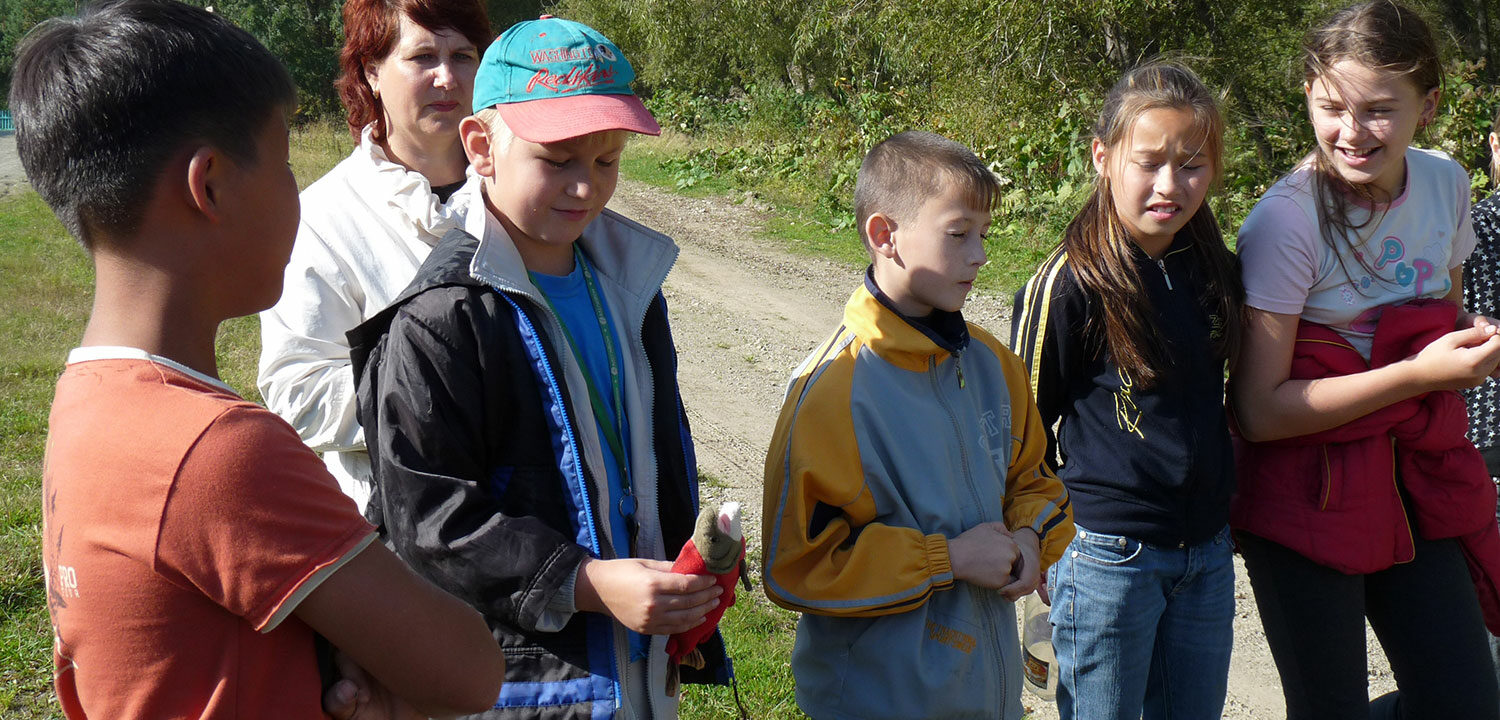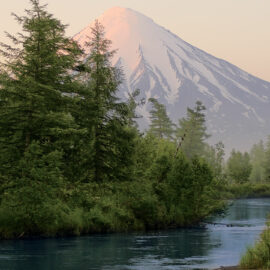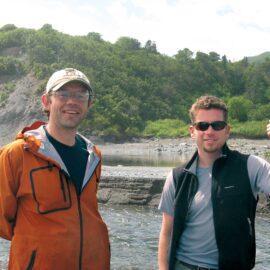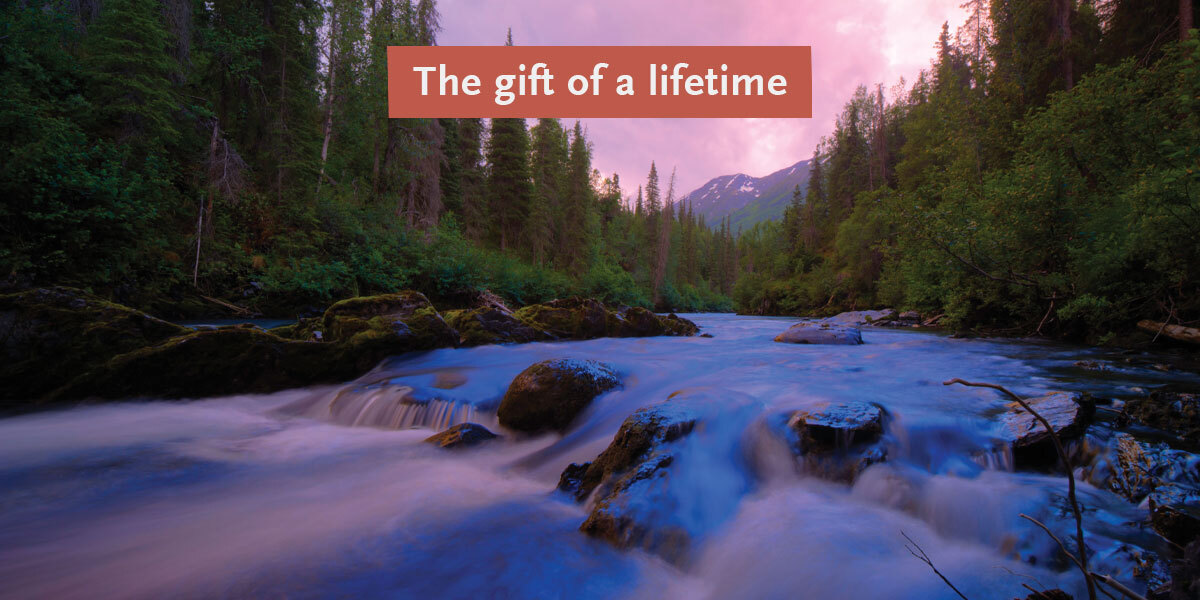Educator Natalia Kizimova inspires a new generation to save salmon.
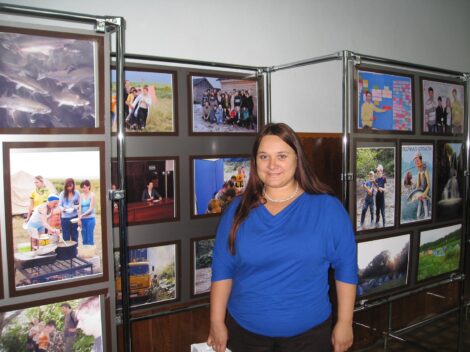
Natalia was working as a history teacher on Sakhalin Island when she found herself drawn to environmental projects. She now serves as Sakhalin Salmon Initiative (SSI) Manager of Education and Outreach. Today, more than 60 educational institutions in the region implement the salmon education programs “Salmon Watch” and “Droplet” with plans for introduction in Kamchatka this year. SSI has collaborated with the Sakhalin Ministry of Education, a variety of environmental specialists, and teachers to reach almost 6,000 people since its launch in 2007. During the Russian-Oregon watershed council exchange in October 2011, Natalia shared the SSI education programs with participants from Khabarovsk and Kamchatka.
How did you get started in your work with salmon conservation?
While working with children as a history teacher, I was gradually attracted to environmental projects. I wanted students to understand, at an early age, the importance of protecting nature. Since the island’s main wealth is salmon, it is imperative for us to know as much about this resource as possible.
I first learned of the WSC five years ago through the SSI, a program launched with the support of Sakhalin Energy Investment Company and the WSC. I started as manager of Education and Outreach, and have since taken on the public salmon council program manager responsibilities.While working with children as a history teacher, I was gradually attracted to environmental projects. I wanted students to understand, at an early age, the importance of protecting nature. Since the island’s main wealth is salmon, it is imperative for us to know as much about this resource as possible.
Why is the preservation of wild salmon populations important for you and the community where you live and work?
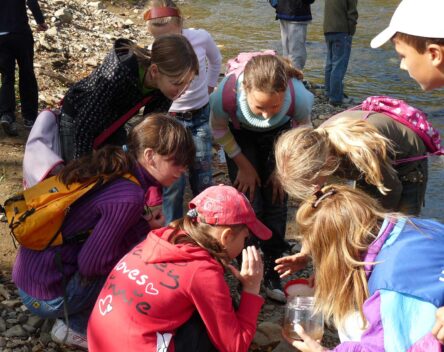
I was born and raised on Sakhalin, and therefore from childhood knew and understood the importance of salmon to the local community. It’s also about economics, as 50% of the population is employed in association with salmon. Additionally, salmon is considered to be an ethnic and cultural symbol. It is very important to preserve wild salmon populations, so that our grandchildren can see the beautiful sight of rivers with naturally spawning salmon.
What do you hope to accomplish?
I enjoy teaching children to love nature and to learn more about salmon. In almost every district kids are working closely for one purpose—to save salmon together! I would also like to work with adults but they can prove to be a greater challenge as they have already formed their view of life and it is very difficult to get them to look at some of the issues from a different angle.
What challenges have you come up against along the way?
The hardest part was to explain to people why exactly I’m involved in wild salmon conservation. Before SSI, nobody was really reaching out to the community to teach them about salmon and river conservation; they got used to salmon being an inexhaustible resource.
In order to be able to explain an issue to others, you first need to understand it yourself. Through education you can inspire others. After all, when you are excited about a topic, people feel your enthusiasm and are more motivated to seek out information themselves!
What are you most proud of?
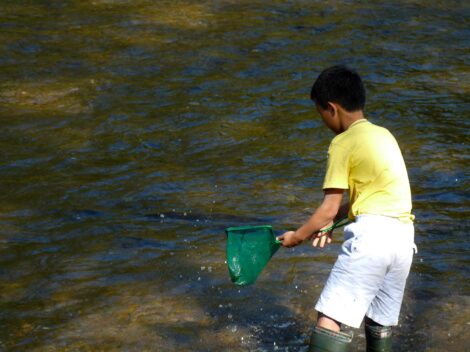
During the four years that I’ve worked in SSI, I’ve seen a very strong change around me. Children from a very young age up to teenagers and young adults happily study about salmon through educational programs like “Salmon Watch” and “Droplet”. More than 60 educational institutions in the region are implementing these programs, which were developed as part of my project. This work went on for three years in close collaboration with the Ministry of Education of Sakhalin and with involvement from different specialists, including ichthyologists, aquatic scientists, biologists, and teachers. We brought together children from all of Sakhalin Island, conducting annual salmon festivals and competitions. In 2011 alone, over 1,000 people participated in the salmon festival and the salmon drawing contest, bringing the total number to over 5,900 people since the project launch in 2007!
But really it is the children that I am most proud of. Because of the work they are doing, the salmon of Sakhalin will have a more hopeful future.
